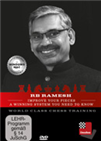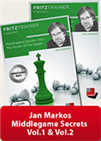We believe that recognising the merit of educational institutions that work with educational chess is fundamental because it promotes academic excellence, encourages students to excel in their studies, motivates teachers and educational staff to continue improving their teaching methods, and strengthens the school community by creating an environment conducive to learning and self-improvement.
The value of the FIDE Award
The importance of awarding recognition prizes to schools and colleges involved in chess projects lies in several aspects. First, these awards can encourage students to participate in additional chess-related activities, which can improve their school performance and critical thinking skills. Second, the prizes can encourage coexistence between students from different cultural and social backgrounds, as chess is a tool for good coexistence between individuals belonging to different socio-economic and religious groups. And, third, the prizes can attract the attention of the educational community and promote the value of chess as a sport, healthy recreational activity and pedagogical tool.
Announcement
The FIDE Education Commission is pleased to announce its new initiative: the launch of the FIDE Chess School Award.
Objectives
The award is established to enhance the quality and position of chess in the primary and secondary education systems around the world. We wish to provide recognition and motivation for existing Chess in Education activities and programs in schools through a certification process. The second objective is to inspire new schools to increase their level of involvement in educational chess. The FIDE Chess School Award provides an effective means to achieve these goals.
The prize committee
The FIDE School Awards will accept applications in English, Spanish, Russian and German from schools around the world. The prize committee is made up of FIDE EDU members Nina Bodenchuk, Boris Bruhn and Uvencio Blanco Hernandez, who will evaluate applications as they are received.
Important
 In this course, we will learn how to identify passively placed pieces in any given situation and how to improve their health by bringing them into active squares.
In this course, we will learn how to identify passively placed pieces in any given situation and how to improve their health by bringing them into active squares.Schools with inclusive programs that involve most of their students, many from varying abilities and backgrounds, have an excellent chance of receiving the award. Schools that celebrate diversity and demonstrate high social awareness in their communities, with a focus on commitment and shared interest between students, educators, and parents for a holistic, game-based approach to education beyond the traditional academic subjects, will also be granted the award.
Several aspects of school chess are examined. There are ten questions altogether, and applicants are asked to answer each question in as much detail as possible and provide supporting evidence. Gold, Silver, and Bronze awards can be obtained depending on meeting all or some of the criteria. Applications are accepted in English, Spanish, Russian, and German languages, and we may add additional languages in the future. The application fee for the award is €150. Two application cycles are planned in each year. In the current cycle, applications are invited until March 31, with the awards announced in June. Please apply via the FIDE EDU website. For more information, see the FIDE Handbook or write to education@fide.com.
The FIDE Chess School certificate and logo can be displayed in school, used in school publications, and promoted on the school website.
National Chess Federations will be notified about all FIDE Chess Schools in their country.
For recognition, award winners will be listed on the FIDE EDU website. Schools will thus make themselves visible to organisations looking for reliable partners for social activities.
FIDE Chess Schools will form a wider community with increased connectivity to one another. Being part of our network opens opportunities for collaboration with other schools and participation in broader chess events.
Online vendors will provide a platform for joint training events and a multitude of chess activities. FIDE EDU will host discussion forums for teachers of FIDE Chess Schools to share best practices and educational resources. Speakers will be invited to share their experiences of using chess as an educational tool.
Additional incentives for schools participating in the FIDE Chess School Award will be provided as they become available.

Photo by Vincent Masole, FIDE School Instructor in Botswana
Conditions - FIDE Chess School Award
We examine your school's suitability for the FIDE Chess School Award in ten categories. There are guiding questions for each category. There is no need to answer every guiding question.
Enhance your application by providing detailed information in your descriptions and by sending us relevant supporting material.
We recommend that you prepare your answers prior to filling in the application form.
1. Facilities
Describe the facilities that enable chess instruction in your school.
- Do you have a special chess room or a chess corner where chess classesare held? If so, how is it set up?
- Do children have access to it in their free time; during lunch hour or breaktimes?
- Where is chess equipment stored?
- What chess materials do the children use?
- Are chess boards available throughout the day?
- If the chess teacher has to set up a regular classroom for chess class, how is it done?
- What equipment is used to deliver chess instruction?
- Do you happen to have a game area with other strategy games playable?
- Do you have a garden chess set for outdoor play?
2. Student involvement
Provide details about student involvement in chess activities.
- How many children attend your school?
- How many children play chess?
- What percentage of children play chess?
- Which age-group(s) are offered chess instruction?
- What is the form of chess instruction: compulsory lessons, optional lessons, after-school club, lunchtime club, another format?
- How much time per week does chess instruction happen?
- Are students playing chess together, or are they separated by age or skill level?
3. Teaching materials
Explain what is taught in the chess classes and what materials are used.
- Do you have a written curriculum for systematic training with a focus onchess development? If so, please describe its main contents.
- Have your chess educators written the chess curriculum themselves?
- Do you use any established systems such as the Steps Method from the Netherlands, Chess Palace from Hungary, Chess for Schools and Communities from the UK, or something else?
- What teaching materials do you use: books, workbooks, online tools?
- What online tools do you use and what is their main role?
- Describe a typical chess lesson.
- What differentiation tools do you use for various performance and skill levels?
 Let us learn together how to find the best spot for the queen in the early middle�game, how to navigate this piece around the board, how to time the queen attack, how to decide whether to exchange it or not, and much more!
Let us learn together how to find the best spot for the queen in the early middle�game, how to navigate this piece around the board, how to time the queen attack, how to decide whether to exchange it or not, and much more!4. Chess events
What chess events are organized in your school?
- Do you organize in-school tournaments? Who takes part in these?
- Does your school participate in inter-school competitions: school chess leagues and cups, online events, country-wide competitions?
- Does your school organize fun chess events such as a school chess day, “grandparent-child team tournament”, live chess on a giant board or similar?
- Do you have chess activities that are not tournament-oriented?
5. Chess Educators
Who teaches chess and what are their qualifications in education and in chess?
- Who leads the chess instruction: teachers in your school, visiting chess coaches, or both?
- Do teachers have FIDE School Instructor titles or a comparable qualification, such as the ECU 101 course award?
- What chess titles, licenses and qualifications do visiting chess trainers have?
- Do you provide training for your teachers? Please attach copies of certificates if available.
6. Representation of school chess
- How visible is chess in your school and in the wider community?
- Do you hold promotional events inside and outside school?
- Do you have a stand at the school festival?
- Are there chess advertising flyers and posters displayed in your school, or on the school website?
- Do you hold fundraising events?
- What promotional materials do you use to attract new students to your school chess program?
- Do you have a dedicated chess page on the school website or in the student newspaper? We are eager to see a small advertising example.
7. Social commitment
How inclusive and socially committed is your school chess?
- Do you cater for children with special needs? How do you include them in the chess classes?
- If chess is taught in an after-school or lunchtime club format, what is the age- spread of the children?
- Do you cooperate with a local chess club to run joint events or refer some students?
- What activities do you offer your students around chess that promote the development of socially responsible, independent personalities?
8. Chess as an educational tool
How is chess integrated into the school curriculum?
- Is chess offered as a compulsory or optional subject in school?
- If chess is a taught subject in the school curriculum, how many lessons are taught per week and to which age groups?
- Does every child learn the rules of chess at some point?
- Do educators also use chess-like minigames, strategy games, exercises and investigations in the lesson?
- Give examples where chess is used as an interdisciplinary or as a transversal tool in your practice. [Transversal tool: when it is used in a field that cuts across all subjects, such as for developing emotional intelligence. Interdisciplinary tool: when it is used to facilitate the learning of a specific subject, such as mathematics or languages.]
9. Financing school chess
Explain how your school chess program is financed.
- Does the school have a budget for providing extra-curricular chess after school or lunchtime?
- Do parents pay for chess instruction?
- Can all children play chess free of charge?
- Are financially weak families supported if necessary?
- How are equipment and activities financed?
10. Testimonials
- Provide us with 3-4 testimonials about your school chess program. Ideally, written by someone from each of the following: students, parents, and educators. Examples for supporting materials:
- Pictures with captions;
- short videos;
- website screenshots;
- promotional materials;
- newsletters;
- copies of newspaper articles;
- other documents;
- testimonials;
- links to websites, social media posts and relevant events. Include links in your answers, and send us all other materials via the FIDE Chess in Education Commission website indexed with your School ID. You may choose your School ID and you must state it on your application form.
What’s the easiest way to win a chess game? We all know finding a good tactic in a game can let you win a point immediately. Therefore, Fundamentals of Tactics is an excellent choice for you if you wish to learn how to start finding tactics in your games!
Links



